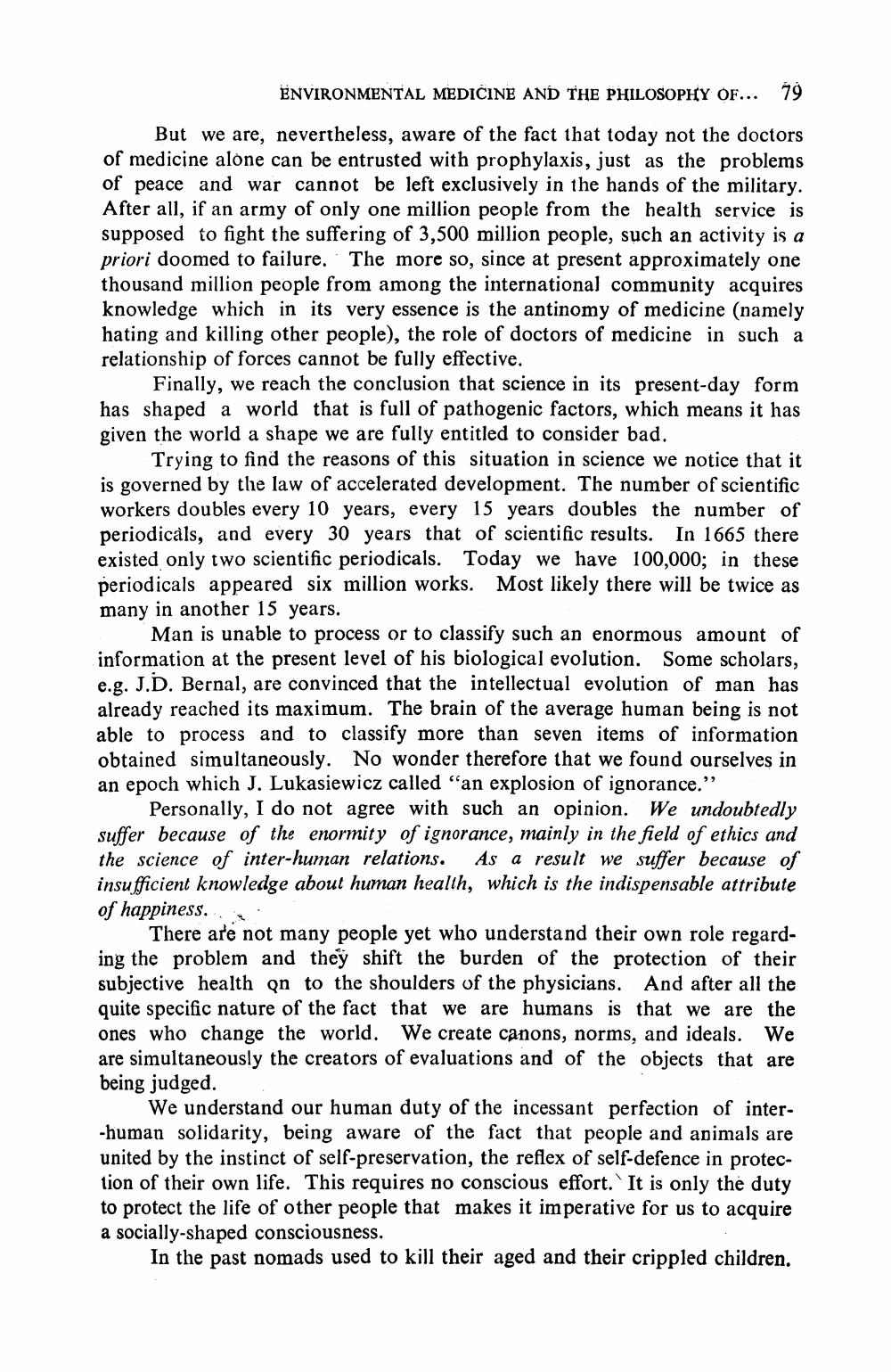Book Title: Environmental Medicine And Philosophy Of Environmental Pprotection Author(s): Julian Aleksandrowicz Publisher: Julian Aleksandrowicz View full book textPage 7
________________ ENVIRONMENTAL MEDICINE AND THE PHILOSOPHY OF... 79 But we are, nevertheless, aware of the fact that today not the doctors of medicine alone can be entrusted with prophylaxis, just as the problems of peace and war cannot be left exclusively in the hands of the military. After all, if an army of only one million people from the health service is supposed to fight the suffering of 3,500 million people, such an activity is a priori doomed to failure. The more so, since at present approximately one thousand million people from among the international community acquires knowledge which in its very essence is the antinomy of medicine (namely hating and killing other people), the role of doctors of medicine in such a relationship of forces cannot be fully effective. Finally, we reach the conclusion that science in its present-day form has shaped a world that is full of pathogenic factors, which means it has given the world a shape we are fully entitled to consider bad. Trying to find the reasons of this situation in science we notice that it is governed by the law of accelerated development. The number of scientific workers doubles every 10 years, every 15 years doubles the number of periodicals, and every 30 years that of scientific results. In 1665 there existed only two scientific periodicals. Today we have 100,000; in these periodicals appeared six million works. Most likely there will be twice as many in another 15 years. Man is unable to process or to classify such an enormous amount of information at the present level of his biological evolution. Some scholars, e.g. J.D. Bernal, are convinced that the intellectual evolution of man has already reached its maximum. The brain of the average human being is not able to process and to classify more than seven items of information obtained simultaneously. No wonder therefore that we found ourselves in an epoch which J. Lukasiewicz called "an explosion of ignorance." Personally, I do not agree with such an opinion. We undoubtedly suffer because of the enormity of ignorance, mainly in the field of ethics and the science of inter-human relations. As a result we suffer because of insufficient knowledge about human health, which is the indispensable attribute of happiness. There are not many people yet who understand their own role regarding the problem and they shift the burden of the protection of their subjective health on to the shoulders of the physicians. And after all the quite specific nature of the fact that we are humans is that we are the ones who change the world. We create canons, norms, and ideals. We are simultaneously the creators of evaluations and of the objects that are being judged. We understand our human duty of the incessant perfection of inter-human solidarity, being aware of the fact that people and animals are united by the instinct of self-preservation, the reflex of self-defence in protection of their own life. This requires no conscious effort. It is only the duty to protect the life of other people that makes it imperative for us to acquire a socially-shaped consciousness. In the past nomads used to kill their aged and their crippled children.Page Navigation
1 ... 5 6 7 8
